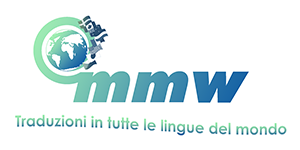h1>Ojibwe syllabary (ᐊᓂᔑᓇᐯ)
Origin
James Evans, a Wesleyan missionary working at Norway House in Hudson’s
Bay, invented a syllabary for the Ojibwe language in about 1840. He
had tried to produce a Latin-based orthography for Ojibwe, but eventually
gave up and came up with a syllabary, based partly on Pitman shorthand.
Evans’ syllabary for Ojibwe consisted of just nine symbols, each of
which could be written in four different orientations to indicate different
vowels. This was sufficient to write Ojibwe, but Evans’ superiors were
not keen on his invention and would not allow his to use it. He later
adapted it to write Cree.
Notable features
- Each sign can be written facing four different directions which
indicate the vowel attached to it - The finals are used to write stand-alone consonants
- There are considerable variations in the way the symbols are written
Ojibwe is an Algonquian language
spoken on by about 50,000 people in the Canadian provinces of Ontario,
Manitoba and Saskatchewan, and by about 30,000 people in the US states
of Michigan, Wisconsin, Minnesota, Montana and North Dakota. The Ojibwe
syllabary is used mainly in Canada, while in the USA the Latin alphabet
is prefered for writing Ojibwe.
The Ojibwe langauge has a number of names, including Anishinaabemowin
(ᐊᓂᔑᓈᐯᒧᐎᓐ) and Ojibwemowin
(ᐅᒋᐺᒧᐎᓐ). The Ojibwa people call
themselves Anishinaabeg (ᐊᓂᔑᓈᐯᒃ)
Ojibwe syllabary

Sample text (unpointed)

Sample text (pointed)

Transliteration
Kakinawenen kapimatisiwat nitawikiwak tipenimitisowinik mina tapita kiciinetakosiwin
kaye tepaketakosiwin. Otayanawa mikawiwin kaye nipwakawin minawa tash ciishikanawapatiwapan
acako minowiciwitiwinik.
Source (pointed text): http://anishinabemowin.21.forumer.com/viewtopic.php?t=34
Translation
All human beings are born free and equal in dignity and rights. They are endowed with reason
and conscience and should act towards one another in a spirit of brotherhood.
(Article 1 of the Universal Declaration of Human Rights)
Links
Introduction to Ojibwe
http://www.native-languages.org/chippewa.htm
Ojibwemowin Zagaswe’idiwin (Ojibwe Langauge Society)
http://www.ojibwemowin.com
Information about the Ojibwe language and orthography
http://www.languagegeek.com/algon/ojibway/anishinaabemowin.html
Ojibwe writing systems
http://en.wikipedia.org/wiki/Ojibwe_writing_systems
Ojibwe language
http://en.wikipedia.org/wiki/Ojibwe_language
Ojibwa people
http://en.wikipedia.org/wiki/Ojibwa
